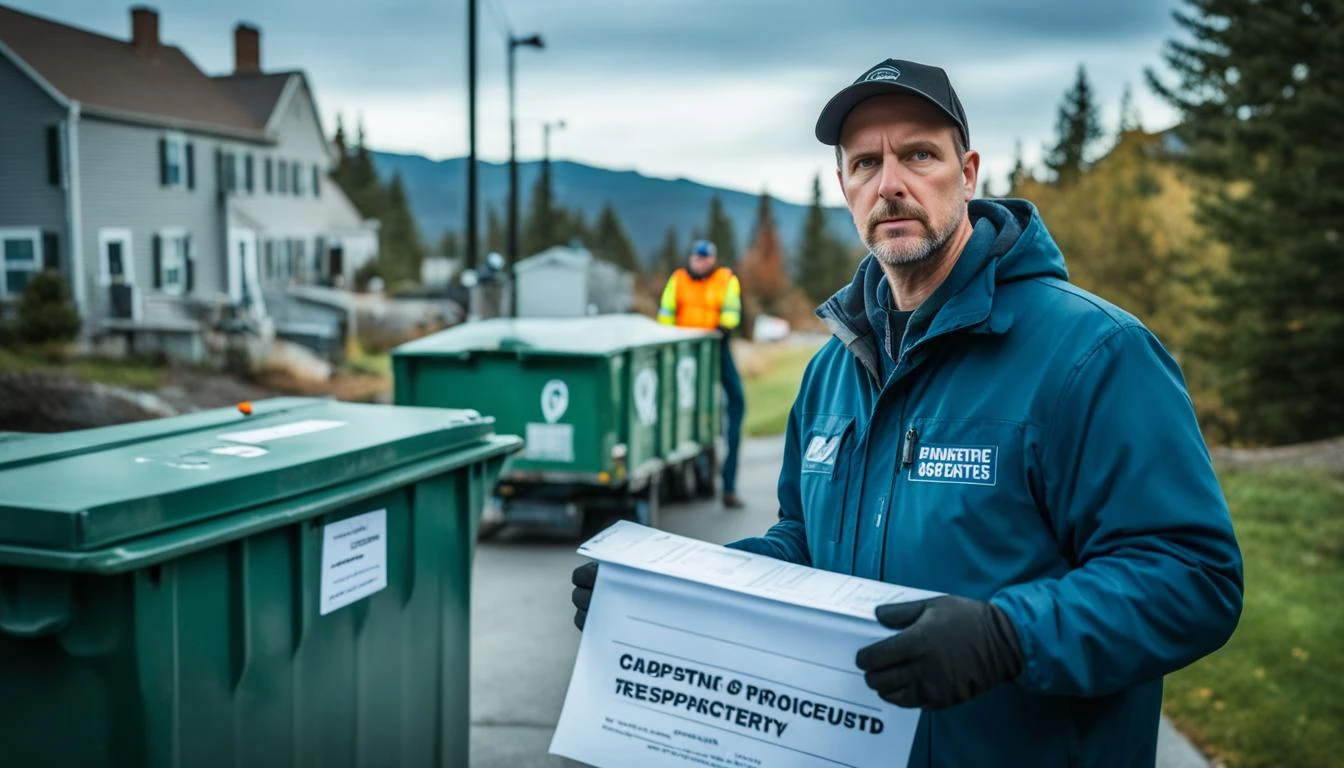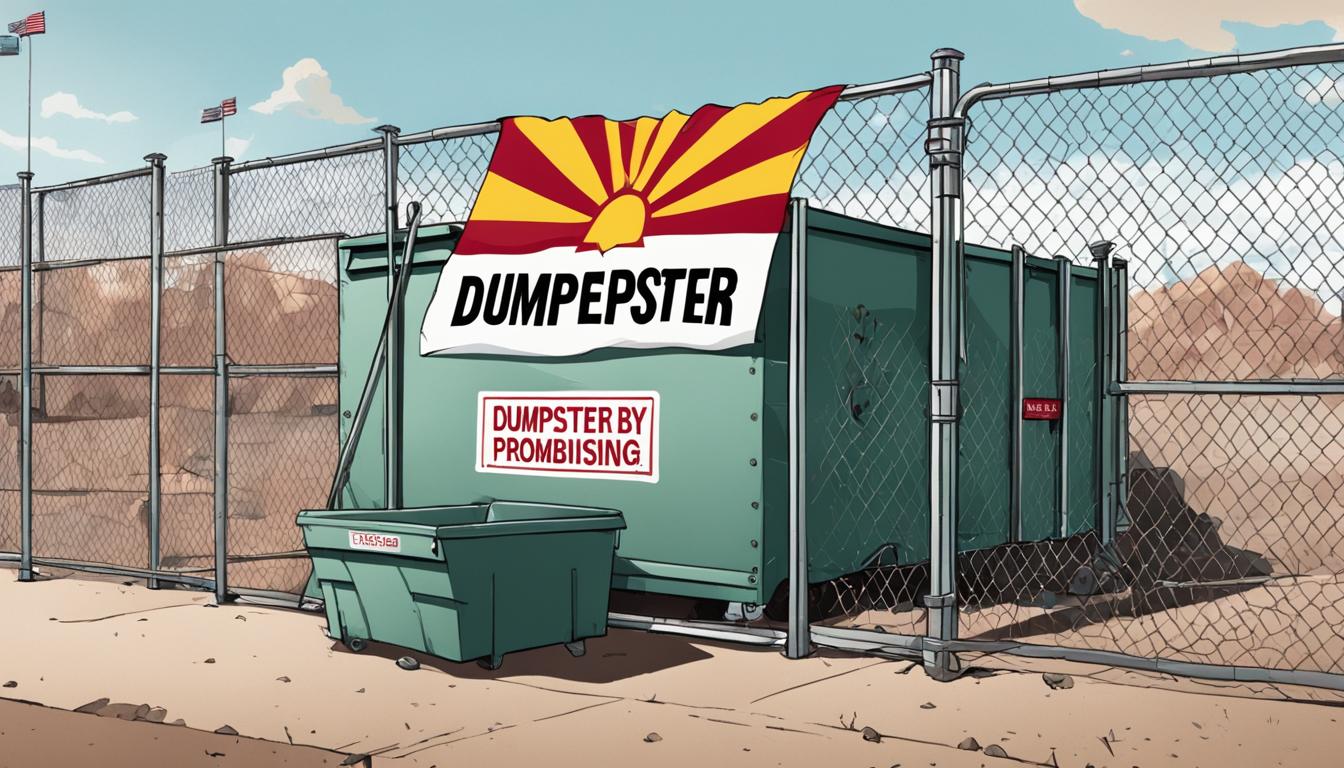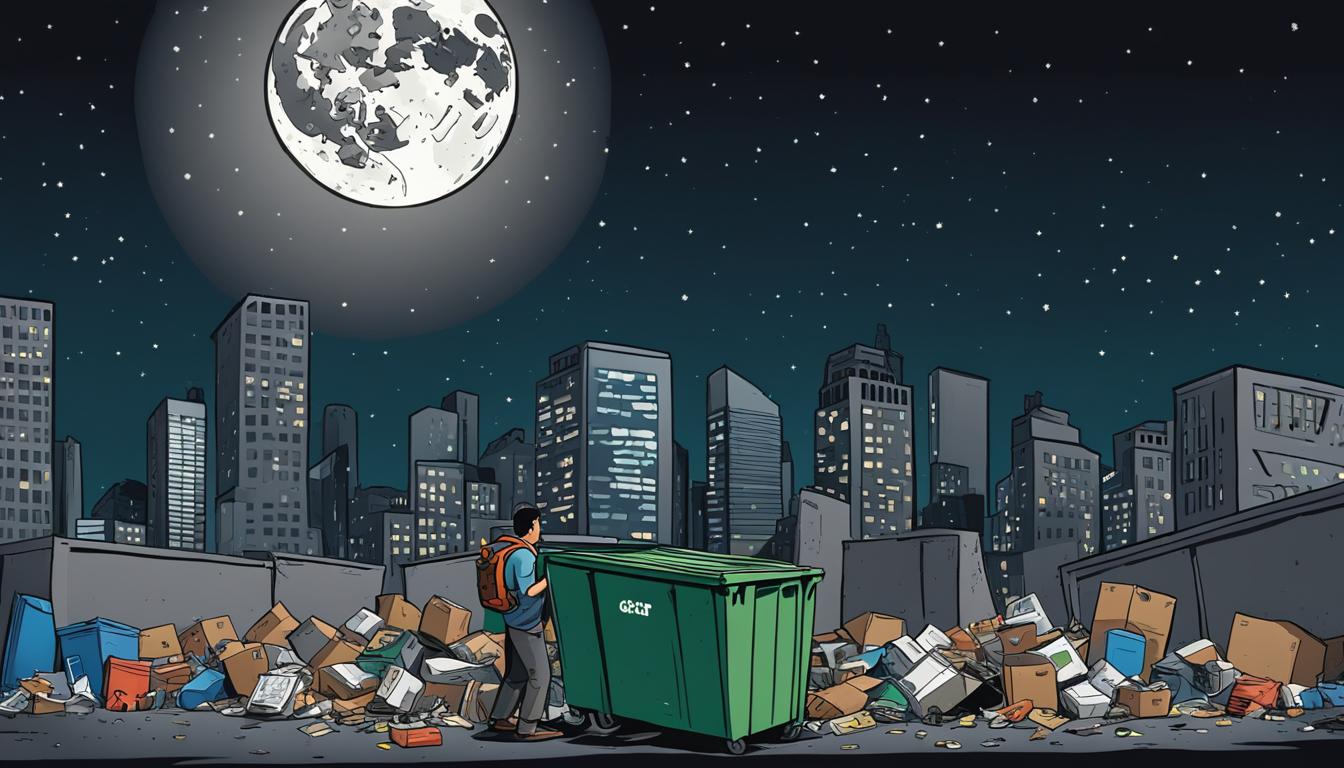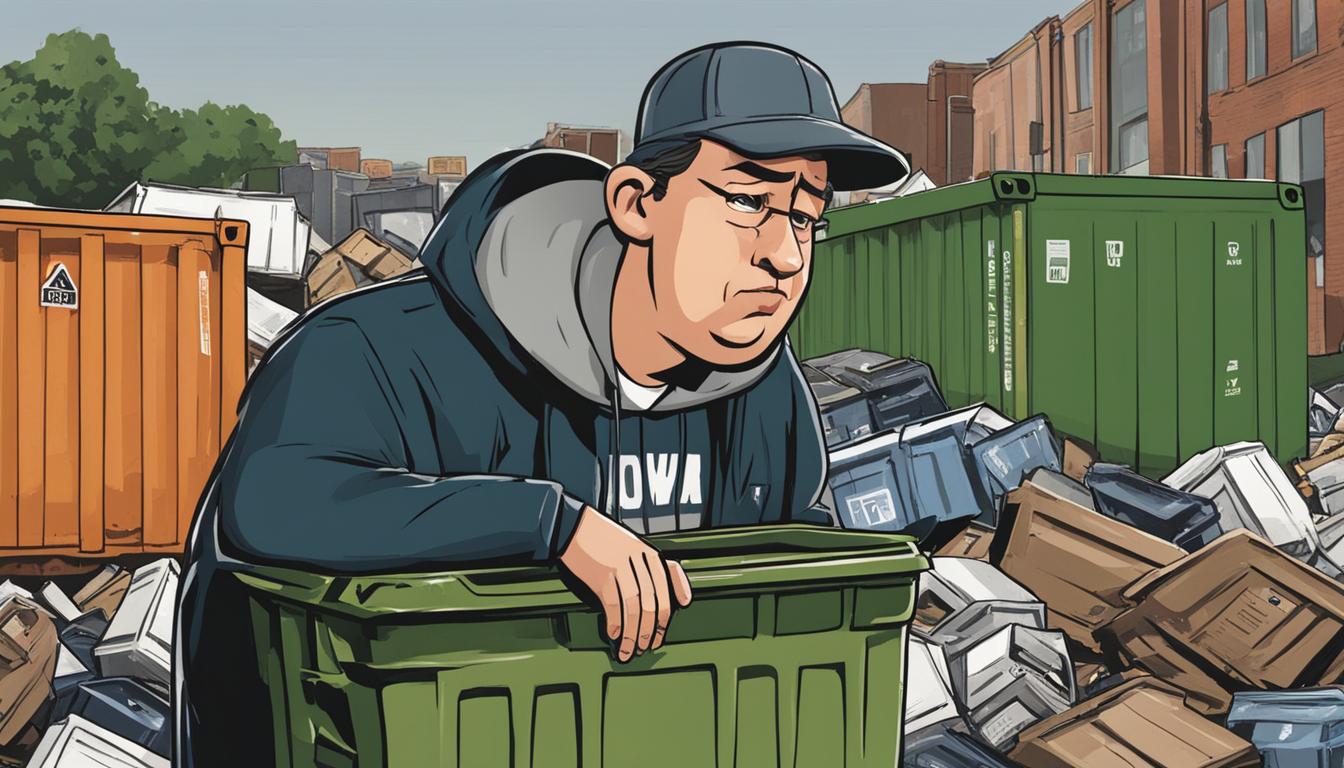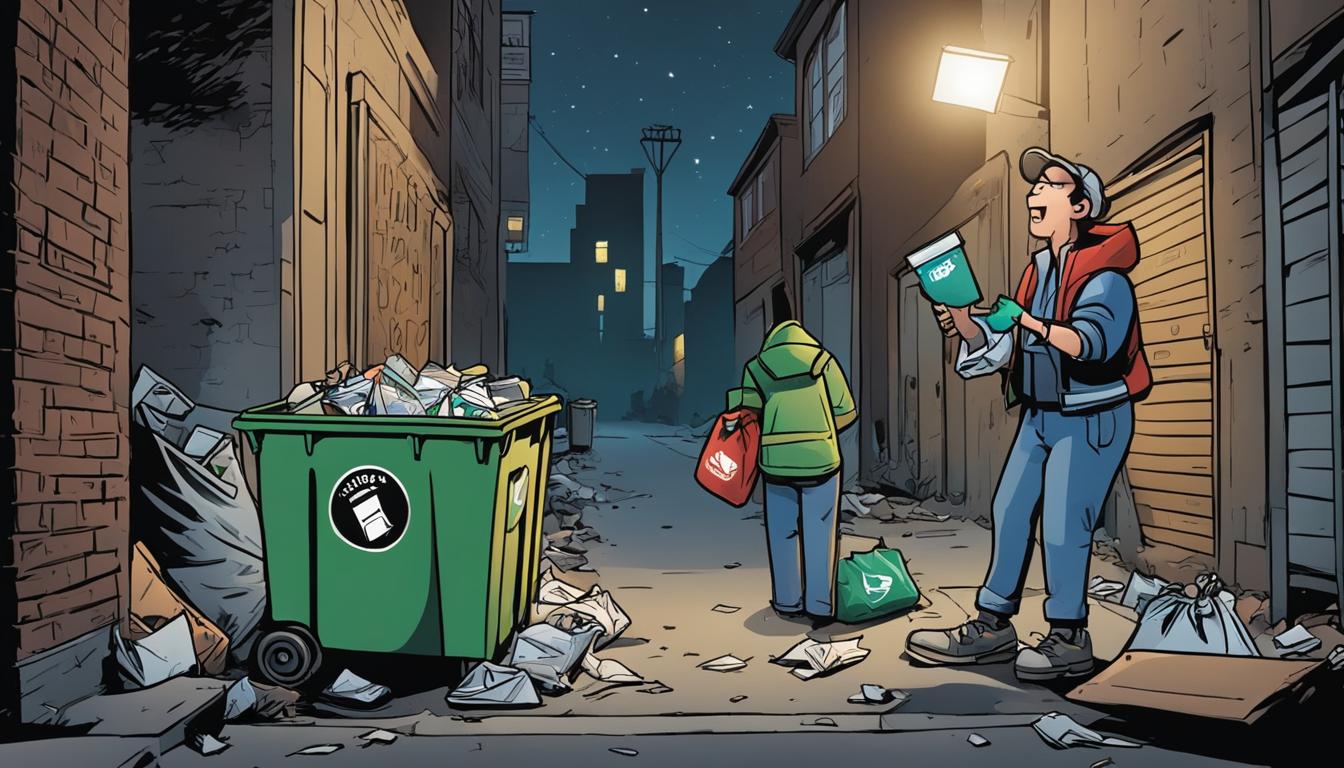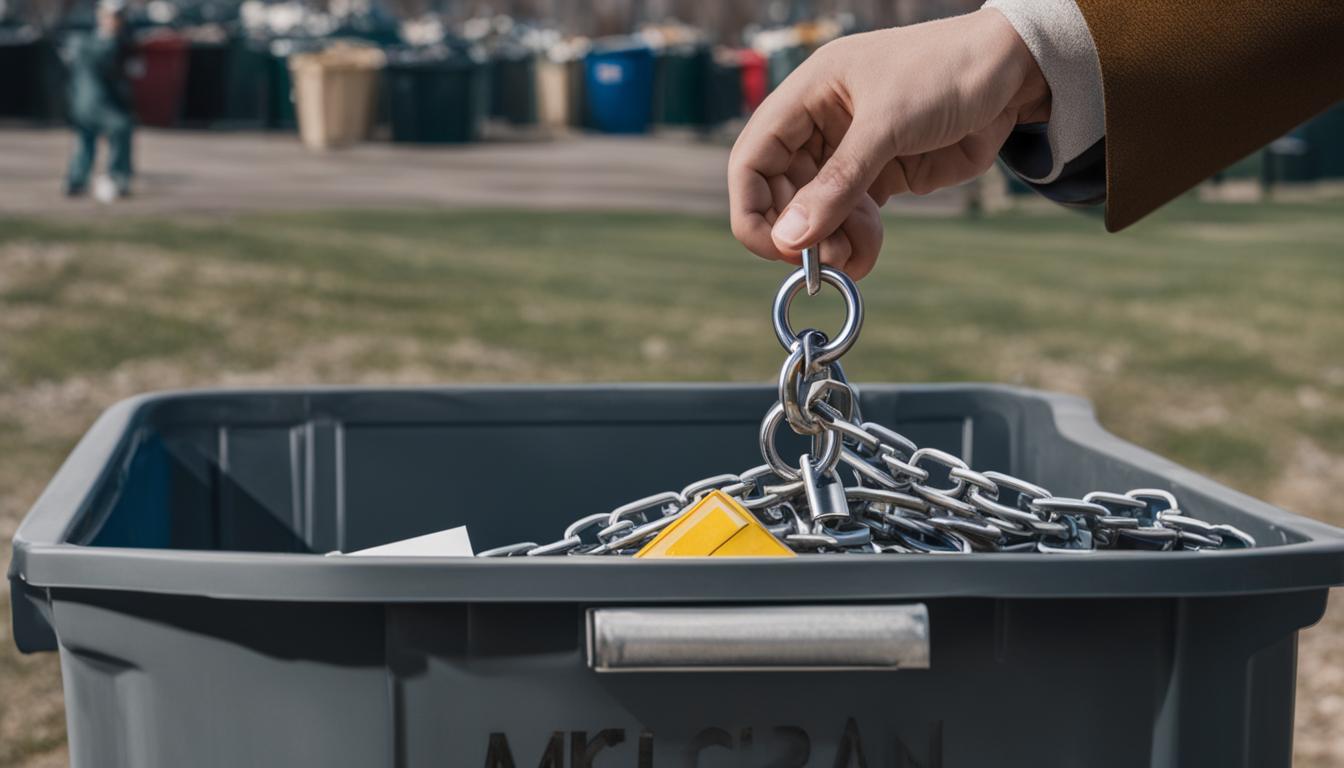Disclosure: This Post Contains Affiliate Links; We earn a commission on purchases.
Have you ever wondered about the legality of dumpster diving? Dumpster diving is the act of rummaging through someone else’s trash in search of discarded items. While it may seem like a harmless activity, there are legal considerations that you need to be aware of. Understanding the laws and regulations surrounding dumpster diving in your locality is essential to ensure that you are acting within the boundaries of the law.
Key Takeaways:
- Dumpster diving is generally legal when performed in public areas where trash is left for pickup.
- Dumpster diving on private property or in enclosed areas without permission may be considered illegal.
- Local laws and regulations regarding dumpster diving can vary, so it’s important to research your specific area.
- People engage in dumpster diving for various reasons, including finding valuable items, salvaging recyclable items, and reducing waste.
- Always practice dumpster diving responsibly and ethically, respecting private property and avoiding any illegal activities.
Is Dumpster Diving Illegal?
Dumpster diving, the act of rummaging through discarded items, may raise questions about its legality. Understanding the legalities surrounding dumpster diving is essential to ensure compliance with local laws and regulations.
Generally, dumpster diving is not illegal when performed in public areas where trash is left for pickup. Items placed in public areas are considered to be in the public domain, and their owners forfeit ownership rights to them. This means that individuals can legally retrieve items from dumpsters in these public spaces.
However, it is important to note that dumpster diving on private property or in enclosed areas without permission can be considered illegal. Trespassing and theft charges may arise in such cases, as individuals are taking items without the owner’s consent. To avoid legal issues, it is crucial to respect private property rights and seek permission before diving into dumpsters located on private premises.
To ensure compliance with local laws and regulations, it is advisable to familiarize oneself with the specific laws in your area regarding dumpster diving. Municipalities may have ordinances or codes that impose restrictions or prohibit dumpster diving altogether. By understanding and adhering to these laws, divers can engage in this activity legally and responsibly.
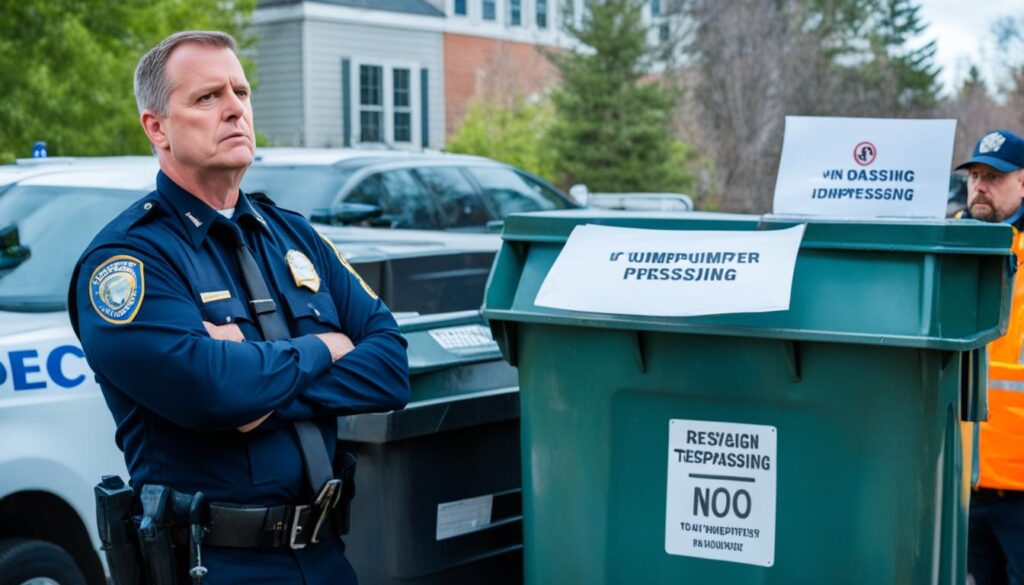
Legal Versus Ethical Considerations
While dumpster diving may be legal under certain circumstances, it is important to distinguish between legality and ethical considerations. Although an action may not be illegal, it does not automatically mean it is morally justified or socially acceptable.
Respecting the environment, private property rights, and others’ personal privacy should be paramount when engaging in dumpster diving. It is advised to take precautions to avoid causing any damage, making unnecessary messes, or violating individuals’ privacy. By approaching dumpster diving with responsibility and respect, divers can contribute to waste reduction and finding useful items while fostering a positive relationship with the community.
| Pros of dumpster diving | Cons of dumpster diving |
|---|---|
| Reduces waste | Potential legal repercussions |
| Opportunity to find valuable items | Health and hygiene concerns |
| Access to food that would otherwise go to waste | Possible violation of personal privacy |
| Environmental benefits through recycling | Perceived social stigma |
Understanding Local Laws and Regulations
Dumpster diving laws can vary by state and locality. While dumpster diving is generally legal at the federal level, it is important to check the laws and regulations specific to your area. Some cities or counties may have ordinances or codes that restrict or prohibit dumpster diving. It is recommended to research your state and county laws regarding dumpster diving to ensure compliance and avoid any potential legal issues.
State and Local Laws
When it comes to dumpster diving, the laws and regulations can differ significantly from one state to another. Some states have specific laws that allow or regulate dumpster diving, while others have no specific legislation. It is crucial to understand the dumpster diving laws in your state to avoid legal complications.
In certain states, such as California and Massachusetts, dumpster diving is generally legal as long as it occurs in public places where trash is accessible to the public. However, other states like Alabama and South Carolina may have more restrictive laws that prohibit dumpster diving in certain situations.
Additionally, it is important to consider local ordinances or codes that may further regulate dumpster diving. Some cities or counties may have specific ordinances in place that restrict or prohibit dumpster diving altogether, even if it is legal at the state level. Therefore, it is essential to research and understand the laws and regulations of your specific locality.
Compliance and Avoiding Legal Issues
To ensure compliance with local laws on dumpster diving, it is recommended to take the following steps:
- Research: Familiarize yourself with the laws and regulations on dumpster diving in your state and local area. Consult local government websites or contact relevant authorities for accurate and up-to-date information.
- Permission: Obtain permission from property owners or waste management companies before diving into dumpsters on private property or in privately owned enclosures.
- Public vs. Private: Distinguish between public and private areas when engaging in dumpster diving. Stick to public areas where trash is left for pickup, such as curbside bins or designated communal dumpsters.
- Respectful Behavior: Practice respectful and responsible dumpster diving techniques to avoid causing damage or creating a mess. Leave the area clean and tidy after retrieving any items of interest.
By understanding the local laws and regulations related to dumpster diving and acting in accordance with them, you can engage in this activity responsibly and legally.
| State | Is Dumpster Diving Legal? |
|---|---|
| California | Generally legal in public areas |
| Texas | No specific legislation; legal in most cases |
| Florida | Varies by county; check local ordinances |
| New York | No specific legislation; legal in most cases |
| Illinois | No specific legislation; legal in most cases |
It is important to note that the information provided in the table above is for illustrative purposes only and may not reflect the current laws and regulations in each state. It is always advisable to consult official sources and legal professionals for accurate and up-to-date information regarding dumpster diving laws.
Reasons People Engage in Dumpster Diving
There are numerous motivations for individuals to participate in the practice of dumpster diving. Whether they’re driven by financial gain, a desire to reduce waste, or the curiosity of uncovering hidden treasures, dumpster diving offers several benefits.
Diverse Reasons to Dumpster Dive
One of the primary reasons people engage in dumpster diving is the opportunity to make extra money. By finding valuable items that can be sold or repurposed, individuals can generate income from discarded goods. This could include salvaging electronics, furniture, or clothing that still has value. Dumpster divers often sell these items through online platforms, yard sales, or consignment stores, turning trash into cash.
In addition to financial motivations, dumpster diving also serves as a means to obtain food that would otherwise go to waste. Many grocery stores and restaurants dispose of perfectly good food, often due to expiration dates or aesthetic imperfections. By rescuing these items, dumpster divers contribute to reducing food waste and can have access to nourishing meals at no cost.
Moreover, dumpster diving presents an opportunity for individuals to salvage electronic waste and recyclable materials, contributing to environmental sustainability. By recovering and properly disposing of these items, dumpster divers help reduce the strain on natural resources and minimize the amount of waste that ends up in landfills.
The benefits of dumpster diving extend beyond financial and environmental elements. Some individuals engage in this activity as a way to find discarded clothing or furniture that they can repurpose or use themselves. This not only saves money but also allows for the creation of unique and personalized spaces.
Lastly, dumpster diving can be a way for individuals to collect cans and bottles for recycling. By retrieving these items from the trash, they contribute to the recycling industry and promote a cleaner environment.
A Visual Representation – Benefits of Dumpster Diving
Here is a table summarizing the various benefits of dumpster diving:
| Reasons to Engage in Dumpster Diving | Benefits |
|---|---|
| Opportunity to make extra money | Financial gain |
| Access to edible food that would otherwise go to waste | Reduction of food waste and cost savings |
| Salvaging electronic waste and recyclable materials | Promotion of environmental sustainability |
| Finding discarded clothing and furniture | Cost savings and unique, personalized items |
| Collecting cans and bottles for recycling | Promotion of recycling and environmental cleanliness |
Overall, dumpster diving offers individuals a chance to find value in what others consider waste. It enables financial benefits, reduces waste, promotes sustainability, and allows for creative repurposing. However, it is crucial for dumpster divers to conduct their activities legally and with respect for private property.
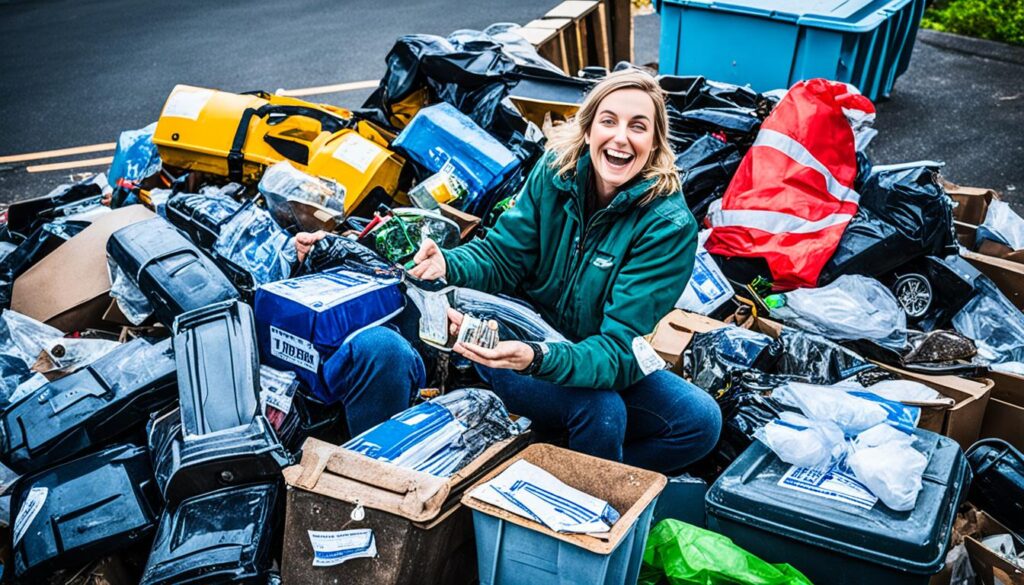
Conclusion
In summary, dumpster diving is a practice that involves rummaging through discarded items in search of valuables or usable items. While dumpster diving laws and regulations vary by location, it is generally legal to search through trash left in public areas for pickup. However, it is important to note that dumpster diving on private property or in enclosed areas without permission may be considered illegal and can result in charges of trespassing or theft.
Therefore, it is crucial to understand and comply with your local laws and regulations regarding dumpster diving. By familiarizing yourself with the specific ordinances and codes in your city or county, you can ensure that you are engaging in dumpster diving legally and responsibly.
Dumpster diving can offer several benefits, such as finding valuable items, reducing waste, and even making extra money. However, it is essential to approach dumpster diving with respect for other people’s property and the environment. Remember to practice ethical dumpster diving by not causing any mess or damage and by leaving the area clean after your search.

Subscribe to Our Newsletter

